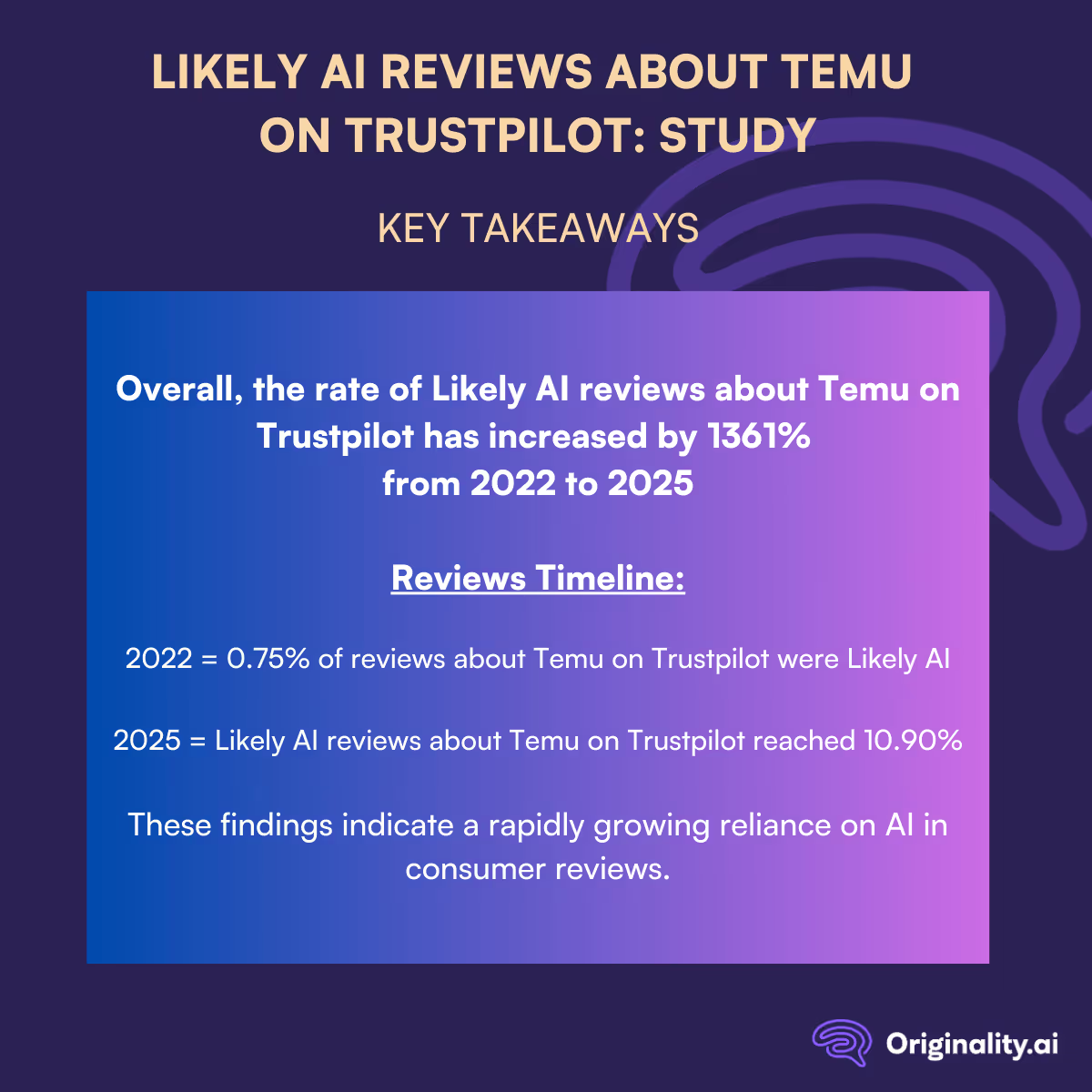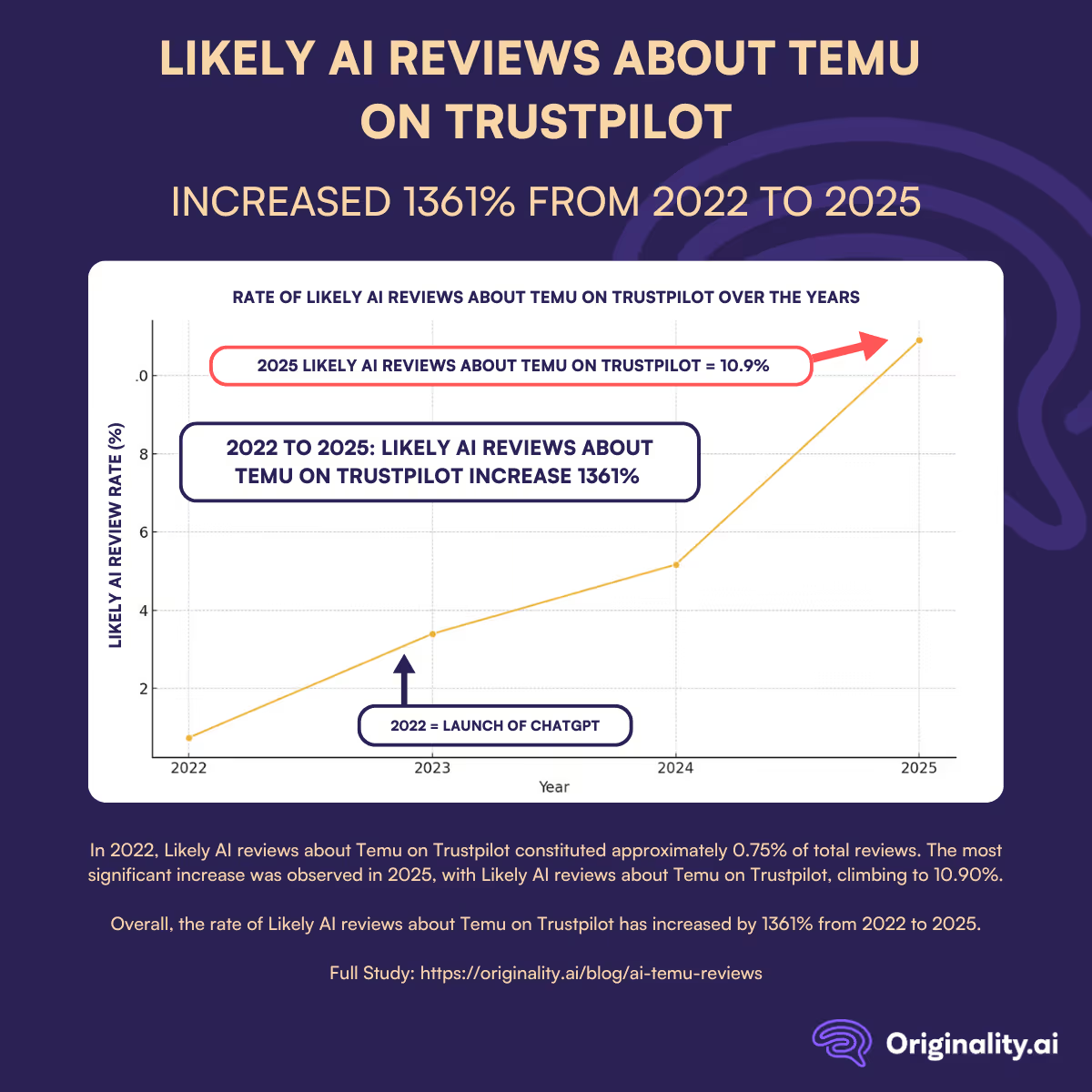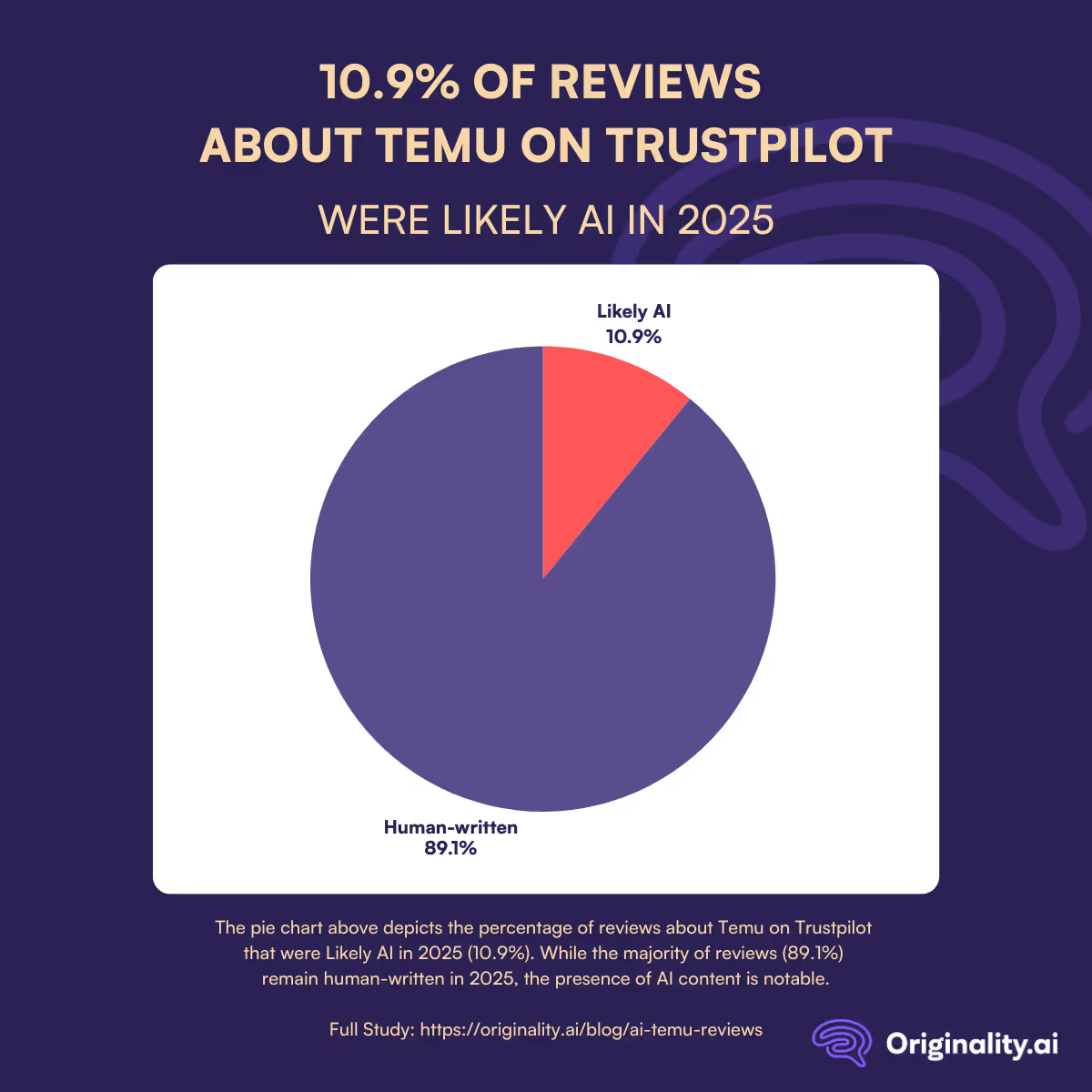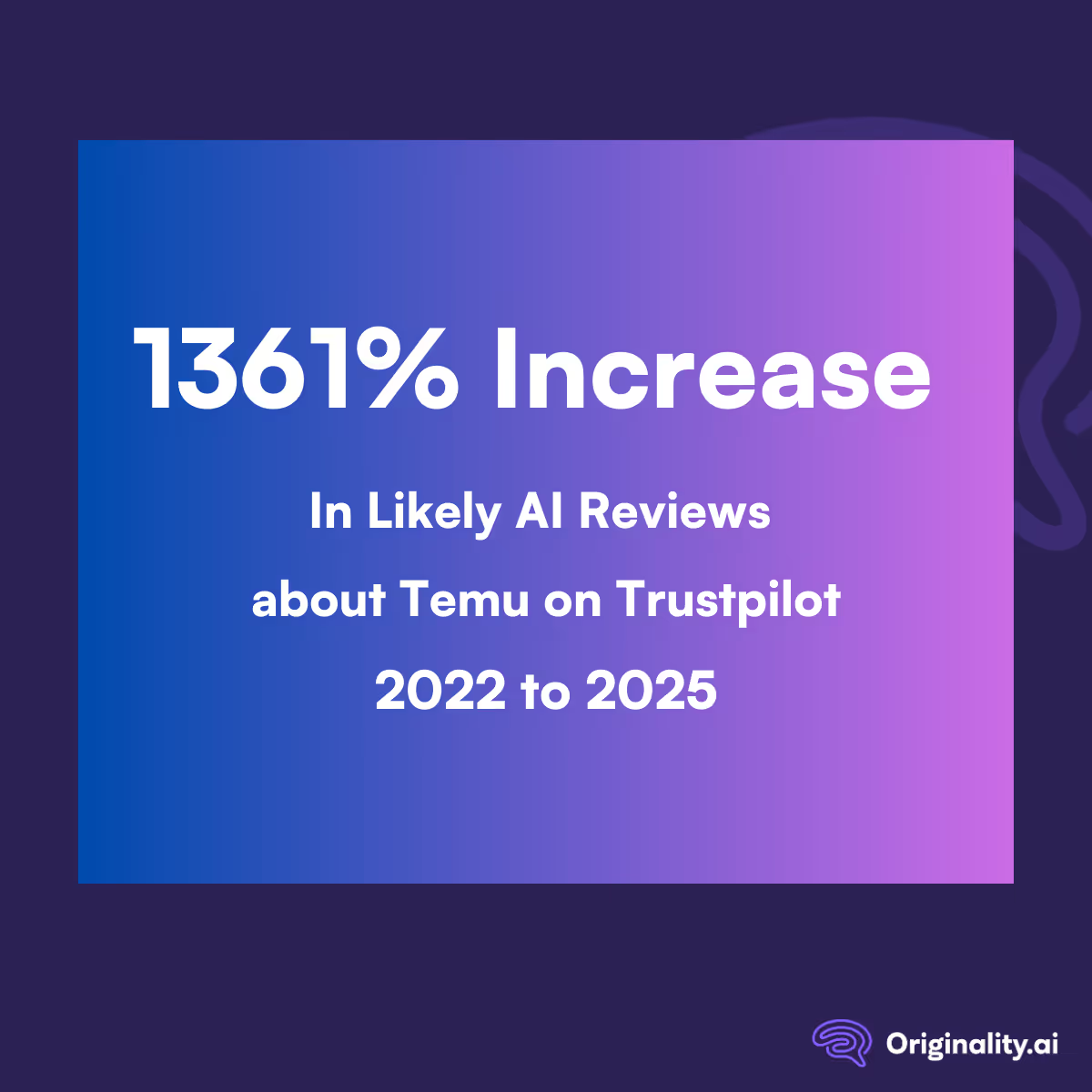In 2024, Temu, the fast-rising e-commerce giant, topped the U.S. App Store download charts for free apps, according to TechCrunch.
Temu has rapidly gained attention for its rock-bottom prices and explosive user growth, which comes just a few short years after its initial launch in 2022, as noted by Crunchbase.
As the company shifts away from direct China-to-U.S. shipping in 2025, as reported by USA Today and Techcrunch, and adapts to evolving logistics, another concern has emerged: the accelerating presence of AI-generated product reviews.
This original study examines the rate of Likely AI reviews about Temu on the Trustpilot website between 2022 and 2025, and what this means for customers.
Note: This study looks into customer input about Temu on the Trustpilot website. As noted in the full methodology at the end of this article, this analysis examines reviews about Temu sourced from the third-party review site Trustpilot, rather than reviews posted directly on the Temu platform. Trustpilot is a platform where customers can review a platform or business and provide feedback.
This study aims to quantify the extent of Likely AI reviews about Temu on the Trustpilot website and whether there has been an increase or decrease in their prevalence over recent years.
By assessing the proportion of Likely AI-generated versus human-authored reviews, we seek to provide insights into how AI is influencing online marketplace dynamics.
Ultimately, the findings from this study will contribute to broader discussions around digital authenticity, consumer protection, and the evolving role of AI in shaping online consumer experiences.


The analysis revealed a clear upward trend in the rate of probable AI-generated reviews about Temu on the Trustpilot website from 2022 to 2025.
In 2022, probable AI-generated reviews constituted approximately 0.75% of the total reviews about Temu on the Trustpilot website. By 2023, this rate (on Trustpilot) had increased to 3.40%, marking a substantial year-over-year rise (although likely AI review levels still remained relatively low in 2023).
However, the trend continued, with likely AI review rates reaching 5.17% in 2024. The most significant increase was then observed in 2025, with likely AI reviews accounting for 10.90% of the total reviews about Temu on the Trustpilot website.
Overall, the rate of Likely AI reviews about Temu on Trustpilot experienced an increase of approximately 1361% from 2022 to 2025.

The findings underscore a significant and accelerating presence of probable AI content in reviews for platforms, such as Temu, on Trustpilot’s website.
Further, probable AI content has also impacted:
This emphasizes that customers will increasingly need means to establish transparency about the review creation process, such as through AI detection.

The presence of probable AI content raises concerns and questions for customers across a number of industries, including review platforms.
To maintain transparency about what they’re reading, customers should consider using AI detection, so they can feel confident about whether a review they might be reading on a platform such as Trustpilot is original and human-written or probable AI content.
In parallel with the rise of likely AI reviews about Temu on Trustpilot, Temu has also undergone significant operational changes. In 2025, the company ceased direct shipments from China to the U.S., the implications of which are yet to be fully seen.
Early traffic data from Similarweb showed a decline in U.S. visits compared to the previous month (when this study was initially published in early 2025).
This raises further questions about how logistical changes will impact customer engagement and, in turn, reviews over time.
In conclusion, while AI-generated reviews can significantly scale content production, they also introduce questions and concerns around trust and authenticity.
To maintain transparency about what they are reading, customers should consider using AI detection to identify whether a review is Likely AI or human-written.
Wondering whether a post or review you’re reading might be AI-generated? Use the Originality.ai AI detector to find out.
Read more about the impact of AI on online platforms:
Data was collected via web scraping reviews of the Temu platform from Trustpilot using Python's requests and BeautifulSoup libraries. Reviews were extracted, including date and text, and saved in CSV format.
Each review (over 50 words) was evaluated for AI-generation likelihood using the Originality.ai API, which provided a confidence score and a binary classification. These results were added to the dataset for further analysis.
The final dataset enabled a temporal analysis of likely AI-generated reviews, focusing on yearly trends and changes from 2022 to 2025.

According to the 2024 study, “Students are using large language models and AI detectors can often detect their use,” Originality.ai is highly effective at identifying AI-generated and AI-modified text.